RV beginnerRV travel and destinations
Beginner's Guide for Reserving the Right RV Campsite
Posted on November 18, 2022
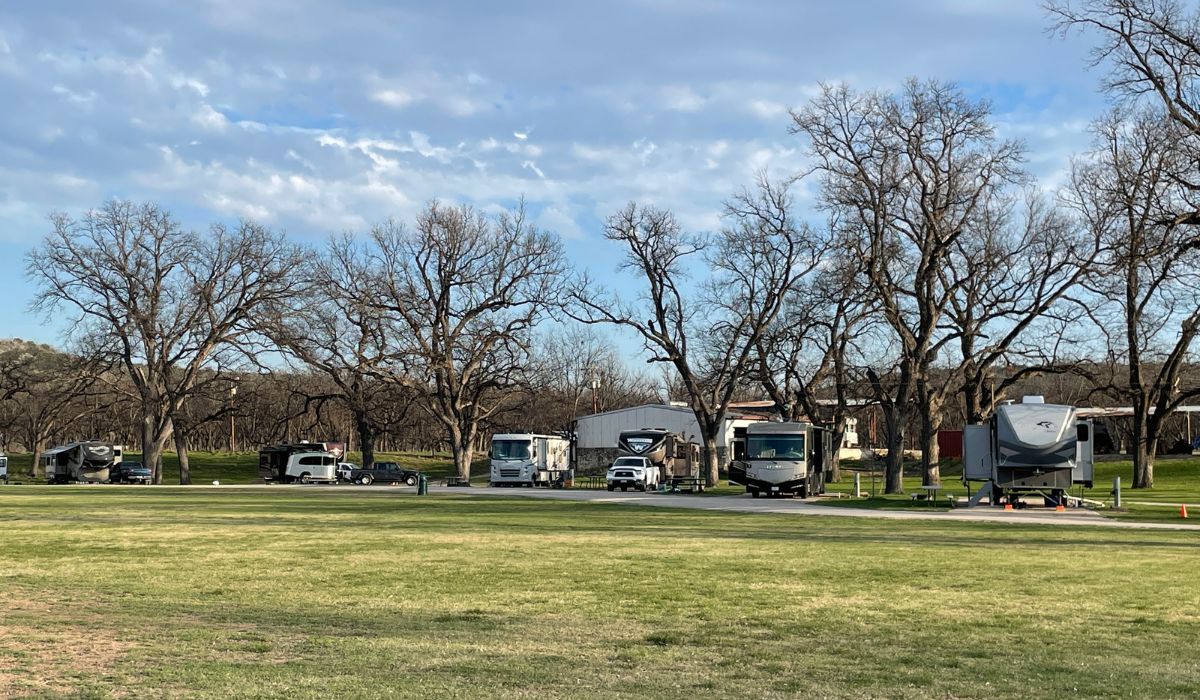
New to RVing? Need help booking your campsite? You’ve come to the right place.
In this guide, you’ll find everything you need to know about RV campgrounds, as well as expert advice on finding the best RV campgrounds for your wants and needs.
Let’s get started
Already familiar with RV campgrounds? Skip ahead to the campground finder and booking apps to reserve your campsite.
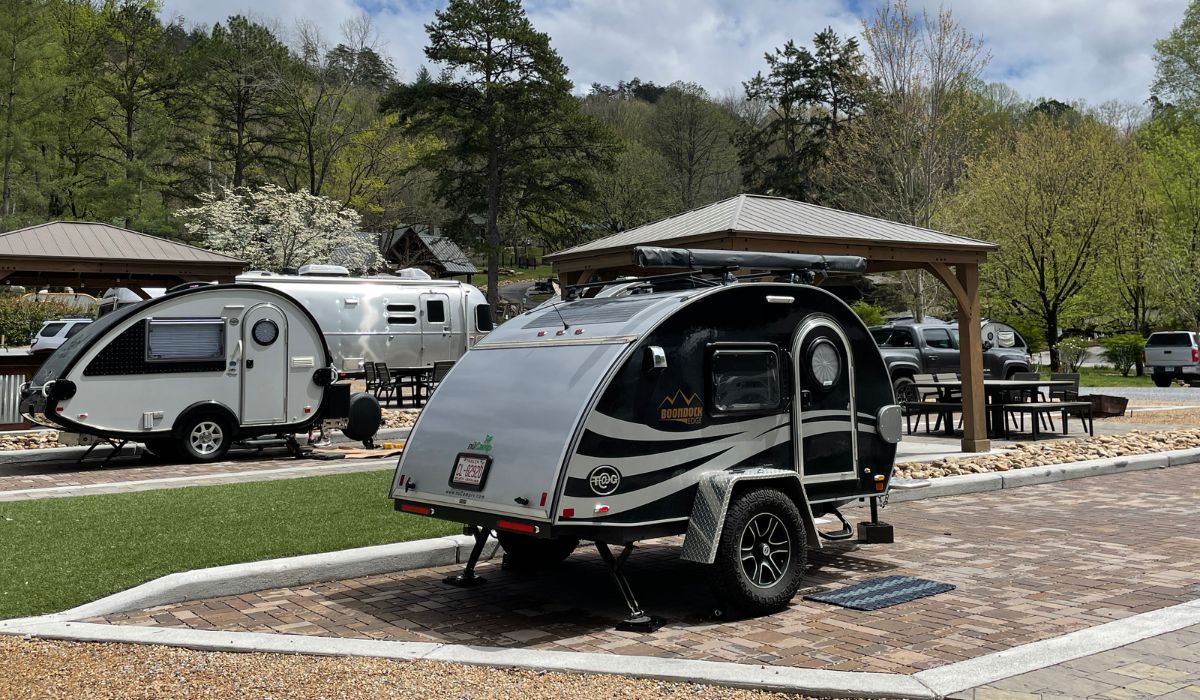
Types of campgrounds
What's the difference between an RV park and a campground? A name. Campgrounds qualify their properties using words like RV park, RV resort, and campground, but the name doesn't always indicate who owns or manages the campground.
Independent or private campgrounds
Independent or private campgrounds are owned or operated by individuals, organizations, and corporations. Campground clubs and memberships like Thousand Trails or Passport America fit into this category. Independent and private campgrounds have the flexibility to build and manage their campgrounds however they see fit, which is why the nightly rates vary from low to high.
Pro tip. Always travel with your checkbook or have some cash on hand because some campgrounds don't accept credit cards.
State, provincial, or territorial park campgrounds
State, provincial, and territorial parks are public lands managed by a state, province, or territory. These parks preserve and promote recreation within natural, historical, or culturally significant areas and are some of the most popular places to go RV camping.
Want to know more about camping in state or provincial parks? Check out RV Camping at State Parks and RV Camping at Provincial Parks to learn more about these campgrounds.
National park system campgrounds
National parks, forests, wildernesses, and conservation areas are federally managed public lands that promote responsible recreation and preserve an area's natural and historical resources. RV camping is permitted in designated campgrounds and free or dispersed camping areas.
City and county campgrounds
City and county campgrounds are managed by a city, county, district, or municipality.
Army Corps of Engineers (COE) campgrounds
Corps of Engineers (COE) campgrounds are managed by the United States military and are typically located near a body of water. COE campgrounds are great places to stay if you enjoy water recreation.
Types of campsites
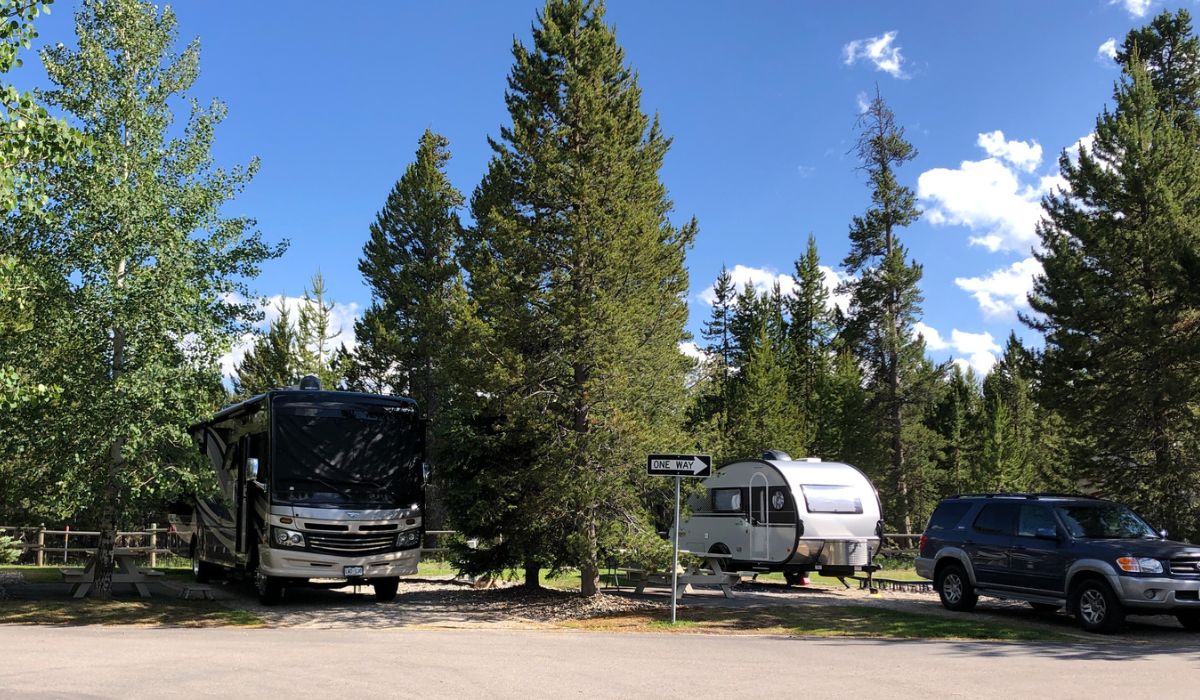
Pull through
Pull-through campsites have an entrance and exit on either side of the parking space, making it easy to park and set up your RV.
Back in
A back-in campsite has only one entrance and exit point, which makes it necessary for you to back into your site to park to set up your RV.
Pro tip. Are you an RV newbie or uncomfortable backing into a spot? Have an RV rental delivered and set up for you, or book a pull-through campsite.
No hookups
Campsites with no hookups don't have electricity, water, or sewer.
Pro tip. Some campgrounds allow onboard and portable generators, but the rules might restrict usage to certain times of the day.
Partial hookups
Partial hookup campsites usually have electricity and water but no sewer.
Full hookups
Full hookup sites have electricity, water, and sewer connections at the campsite.
Types of hookups
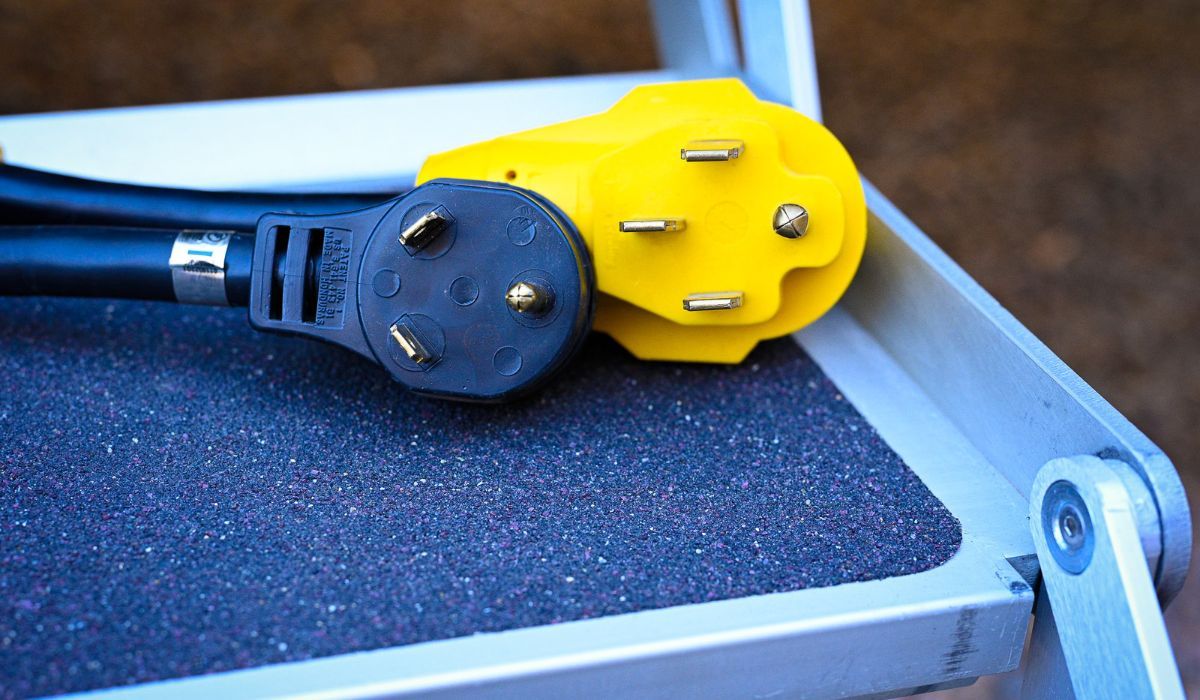
Electrical
Most RVs have either a 30- or 50-amp electrical cord. The hookup option you'll need at the campground depends on how much power your RV needs. Generally, smaller RVs use 30-amp, while larger RVs use 50-amp outputs.
Without getting too complicated, here is what you need to know.
A 30-amp plug has three prongs, and a 50-amp has four. If your RV has a different electrical system than what's available at a campsite, you can use an adapter to connect to either a 30- or 50-amp connection.
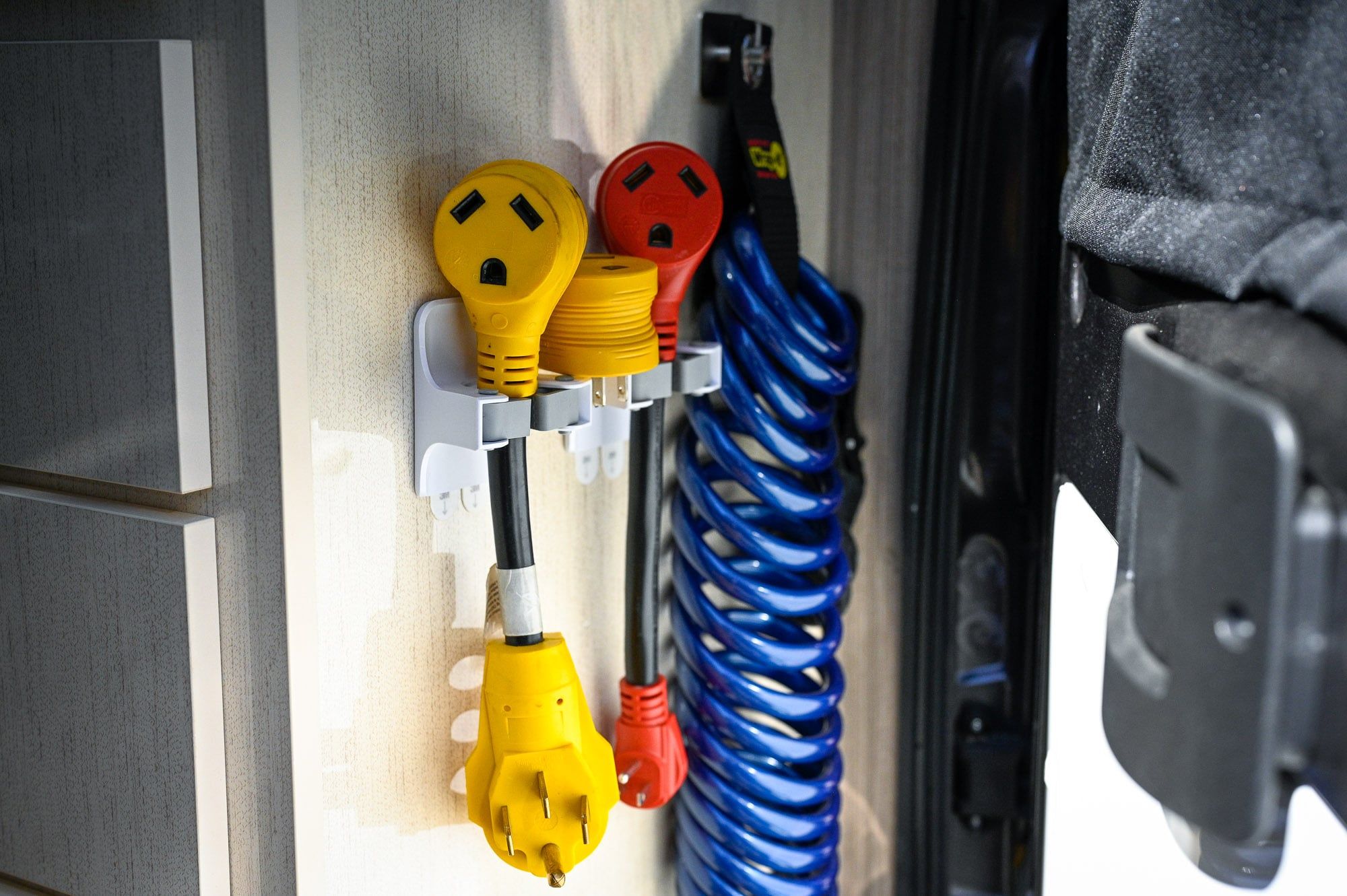
Pro tip. Even though you can connect to a different amperage using an adapter, you won't be able to run all of your larger devices simultaneously when you connect to a 30-amp power source with a 50-amp RV.
Water
Water hookups allow you to attach your drinking water hose directly to your RV from the campground's water connection.
Pro tip. If the RV doesn't have a water filtration system, you can filter the campground's water using an in-line water filter.
Sewer
Sewer connections allow you to attach an RV sewer hose from your black water and gray water-holding tanks and dump the waste at your site.
Pro tip. Got questions about your RV’s holding tanks, but you don’t know who to ask? Check out 9 Things You Need to Know About Your RV’s Black Water Tank.
Campground amenities
No two campgrounds are alike. Some campgrounds have nothing more than a camp host on the property, while others have swimming pools, hot tubs, beach access, game rooms, outdoor activities, playgrounds, and much more.
Some of the most common amenities found at an RV campground might include the following:
Restrooms and showers
Campgrounds may have vault or pit toilets or upgraded restrooms with flushing toilets, running water, and showers. If you want to use the restrooms, be aware that some campgrounds require campers to pay for the showers.
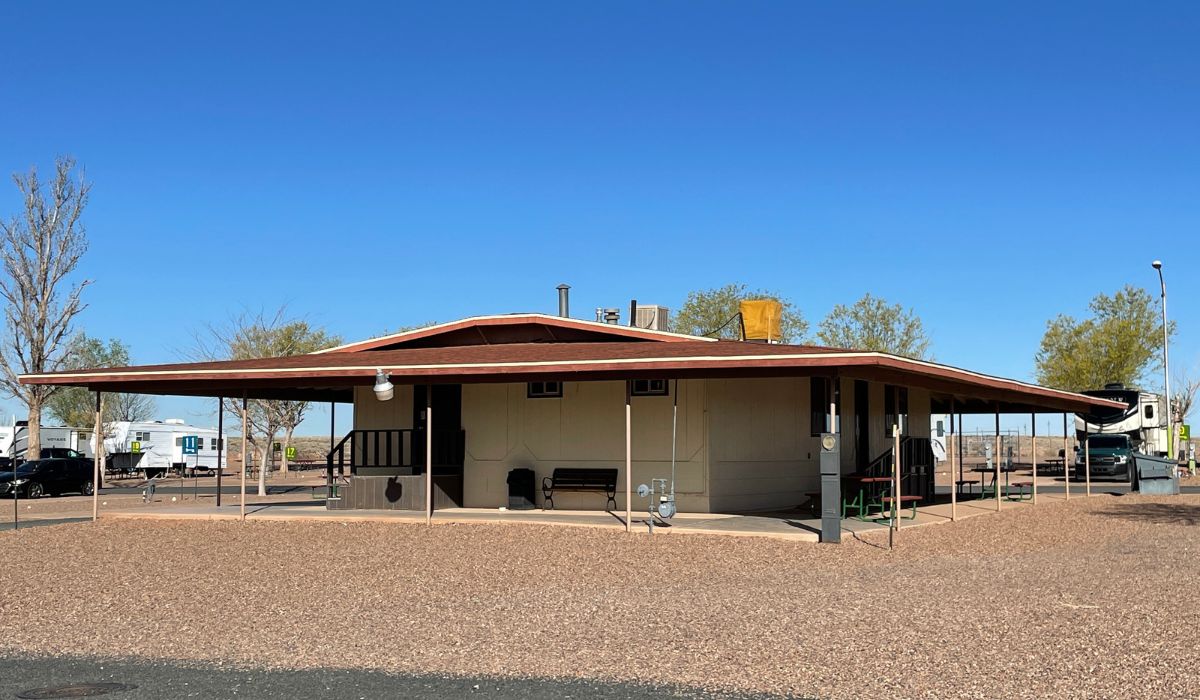
Pro tip. Always keep a roll of quarters in your bathroom bag along with your shower shoes, towel, and toiletries.
Dump station
Many campgrounds have an on-site dump station available for registered campers, even when some of the sites have full hookups. Some campground dump stations are just a drain in the ground, while others have potable and non-potable water faucets for cleaning your sewer hoses and filling your freshwater holding tanks.
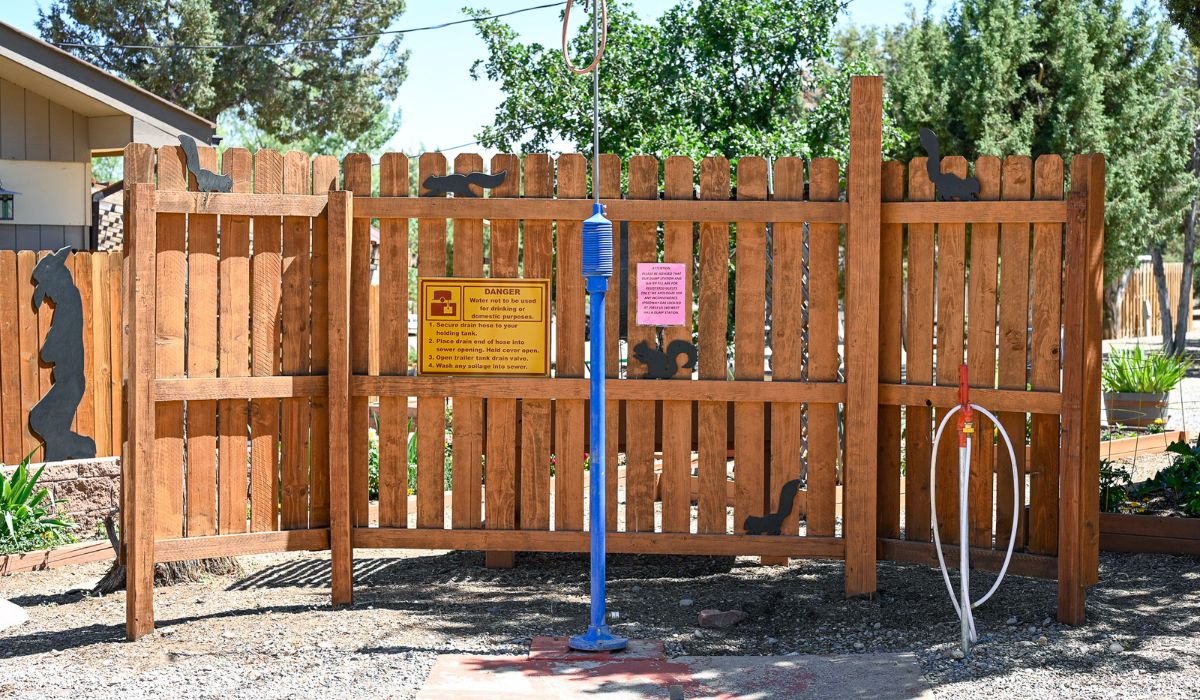
Laundry
Sometimes campgrounds have coin-operated laundry facilities on site. These laundry facilities are like a laundromat but only allow registered campers to use the machines.
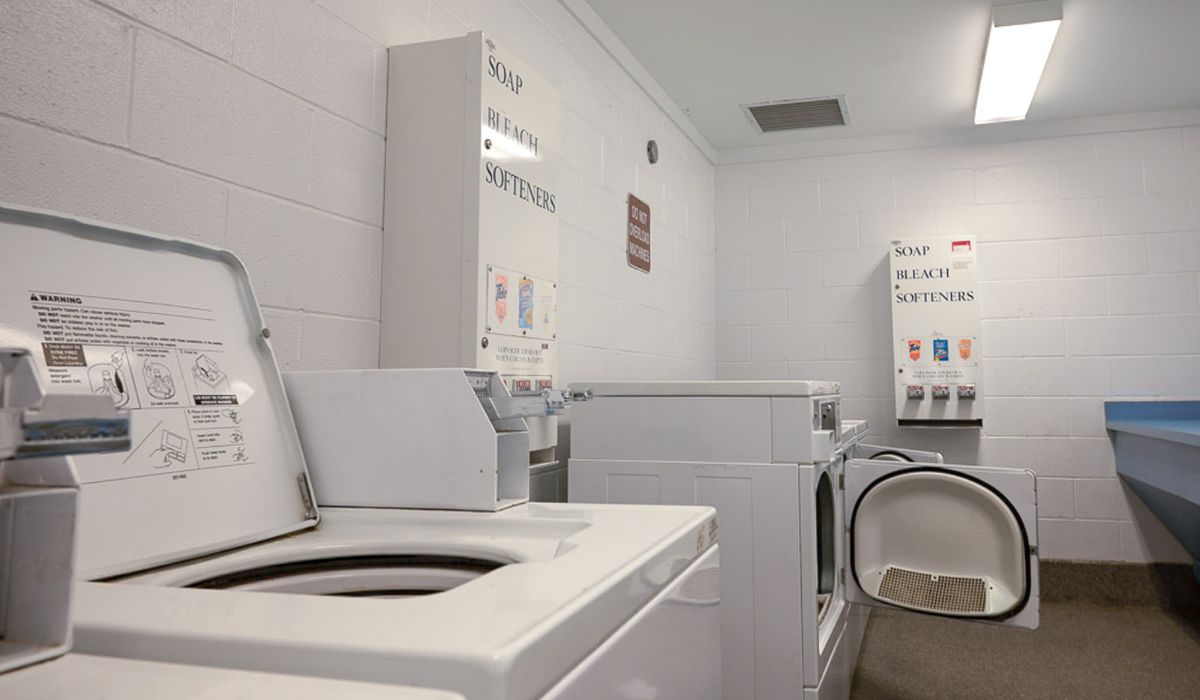
Trash
Campgrounds may have dumpsters, recycle bins, or trash cans for campers to dispose of their trash, but if they don't, you'll have to recreate responsibly and pack your trash out yourself.
Firewood
Contact the park directly to find out if there is a firewood policy or fire ban, or visit the interactive map at Don't Move Firewood to learn the recommendations for using firewood responsibly.
Propane sales
Some campgrounds have on-site propane sales. Because it's convenient, the cost of propane at a campground is often higher than the cost of propane at a hardware store or propane filling station.
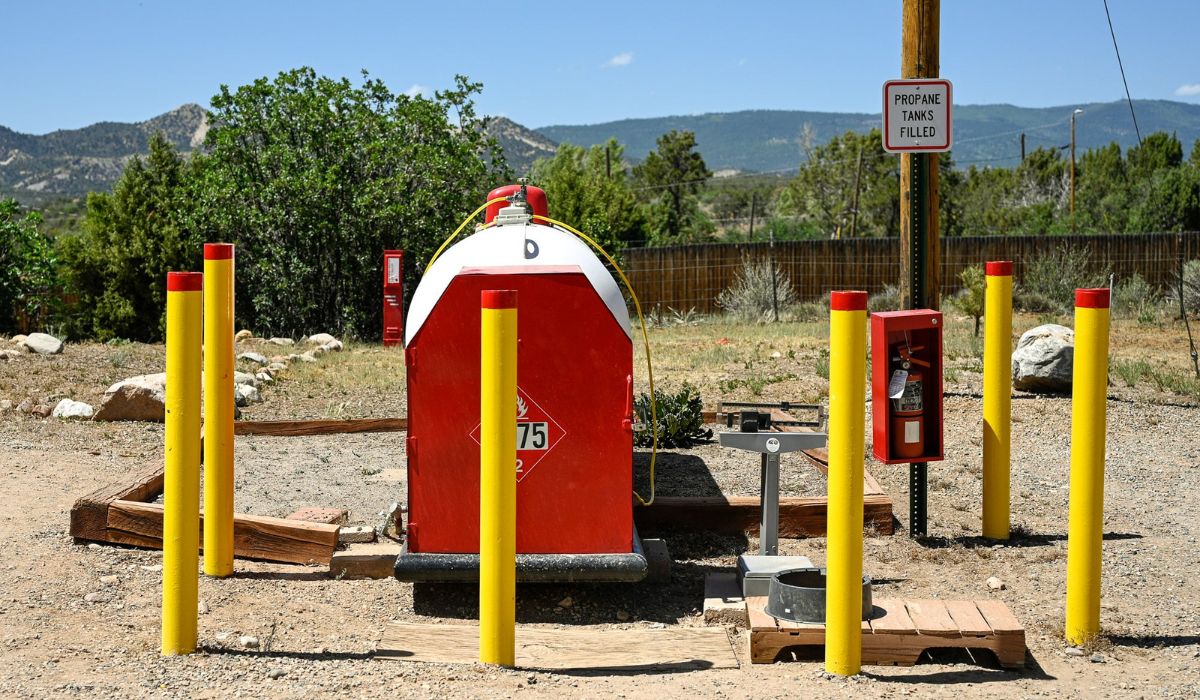
Cell phone signal and Wi-Fi
Depending on where you stay, you may or may not have a cell phone signal. Some campgrounds have free Wi-Fi, meaning you can text or make calls over a Wi-Fi signal. However, be aware that campground Wi-Fi is notoriously unreliable, so even if you have a strong enough connection to send a text or respond to an email, you most likely won't be able to stream anything or download large files.
Pro tip. Use the OpenSignal coverage map to see if you may have a signal in your campground, or get the app to check your download speeds or find a signal on the go.
Campground policies
Operating hours
Every campground operates differently. Some campgrounds stay open year-round, while others close their gates nightly or seasonally.
Verify if the park has the following:
- Special permits needed or timed entry requirements.
- Seasonal operations or facility closures.
- Gate closures or arrival and departure restrictions.
Age restrictions
Age-restricted and active-adult communities have rules that require their guests to meet a minimum age requirement to stay in their campgrounds.
RV type or age
Campgrounds may have rules regarding the type or age of the RVs welcome in their facility. For example, some campgrounds only allow Class A motorhomes or limit their facility to self-contained* trailers and motorhomes newer than ten years old.
*Self-contained RVs have a bathroom and cooking area inside.
Pets
If you want to take your pet camping, review the campground's pet policies before you reserve your site. Some campgrounds may have breed restrictions or limit how many pets you can have in a campsite.
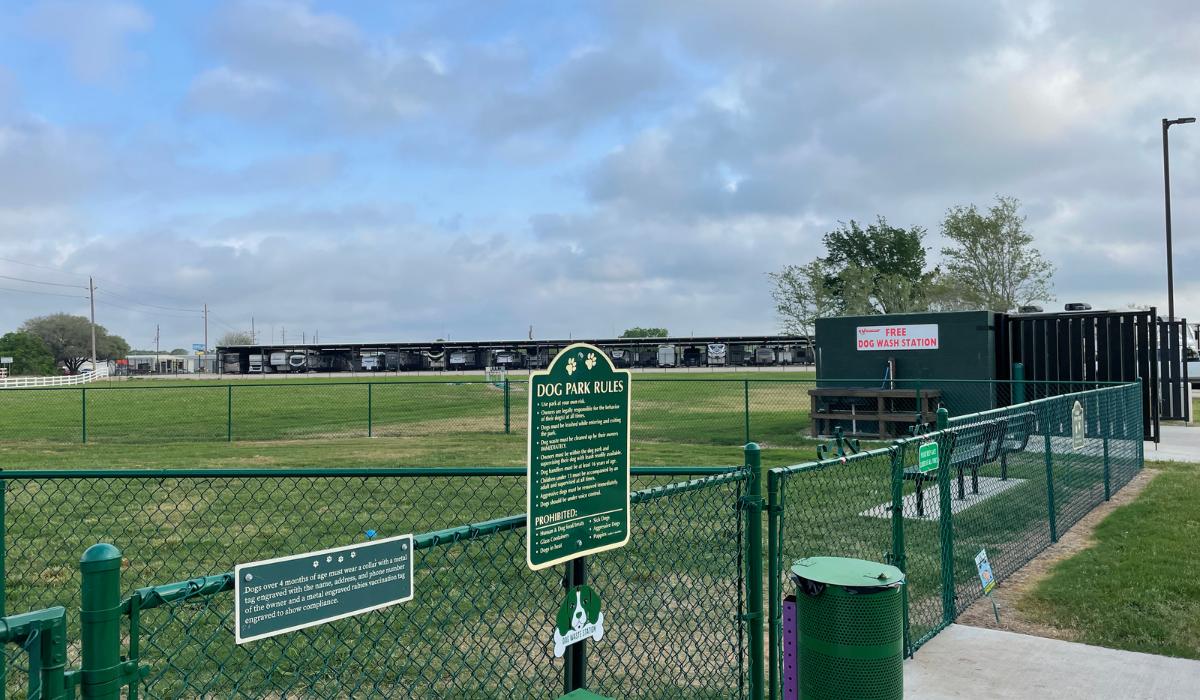
Size restrictions
It's important to reserve a site that has enough room for the length of your RV, slide outs, awnings, and a tow vehicle if you have one.
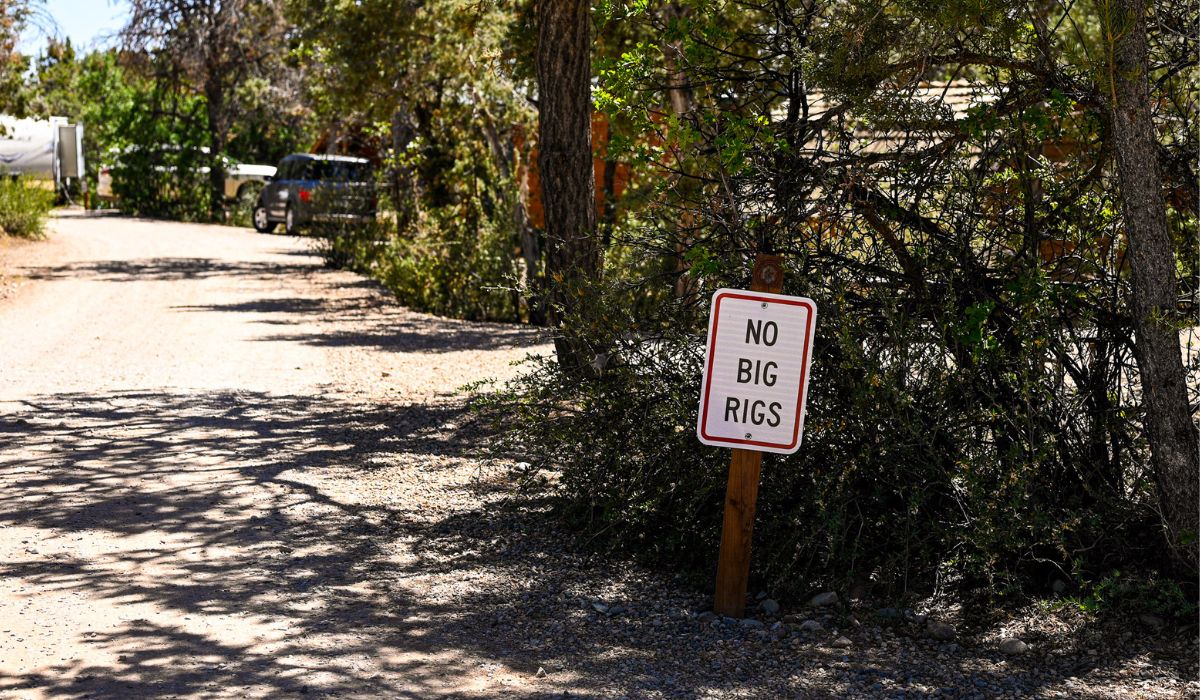
Pro tip. View a campsite's details to find the max size trailer or motorhome permitted. Keep in mind that low-hanging branches or tree limbs may impact slide outs, awnings, satellite television, or internet use.
Seasonality and winterization
Campgrounds might close during the winter or have seasonal availability. If a park stays open year-round, its campgrounds might close or limit its services during the colder months.
Max occupancy
The maximum number of people permitted in a campsite. On average, campgrounds allow between six and eight people at each site, but the rules will vary.
Accessibility
Accessible campsites are often paved, level, and larger than standard-size campsites to accommodate wheelchairs.
Campground finder and booking apps
The best way to find a campsite is to search for a campground using a web-based RV campground search or a campground booking app. Most campground searches allow you to filter your search based on location, campground type, amenities, and much more.
- AllStays
- BookOutdoors
- CampersApp
- Campendium
- Campground Views
- Campspot
- The Dyrt
- Harvest Hosts
- Hipcamp
- KOA
- ParkAdvisor
- Recreation.gov
- Reserve America
- Roadtrippers
- RV Life Campgrounds
- RV Parky
- Sēkr
- Spot2Nite
Want to know a little more about the best RV travel apps? Check out the Best Apps for RVing and the Top RV Trip Planners for a breakdown of some of the best programs and apps mentioned above.
How to reserve a campsite
Ready to reserve a site? RV camping is a popular pastime, and because of that, many campgrounds have moved away from first-come, first-served (sometimes called walk-up) camping to reservation-only camping.
Making a reservation is easier than ever, too, since many campgrounds have an online reservation system. Reservation windows vary by campground, but many campgrounds make their campsites available as far out as six months to a year in advance.
Here are a few things to think about before making your reservations.
- Dates of travel.
- The campground's check-in and checkout times.
- Preferred campground amenities.
- RV size.
- The type and location of the hookups.
- Any site specifics such as shade, fire pit, picnic table, extra parking, and location to campground amenities.
Cancellations
Every campground sets its cancellation policies, and the process can differ from campground to campground, even when a park is part of a chain. Although most parks impose a cancellation fee, you will likely get a refund on everything except the cancellation fee if you cancel before the campground's cancellation deadline.
Last-minute camping
Want to go camping at the last minute, but you're worried about finding an available site? Check the campground's website frequently for cancellations or use a site like Campnab, which scans sold-out spaces and notifies you when a spot opens up.
Get an RV delivered
Did you know that having an RV delivered to your campground makes it easy for you to jump-start your camping trip? Search for deliverable RVs and have an RVezy host deliver and set up a trailer or motorhome at a campground near you.
Related resources
6 Steps for Planning a Successful Road Trip
RV Camping at a State Park
This post may contain affiliate links. Learn more and read our full disclosure policy here.
